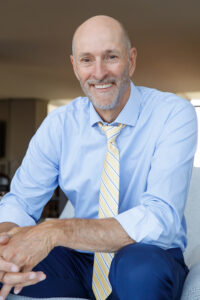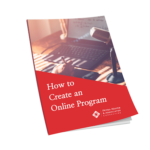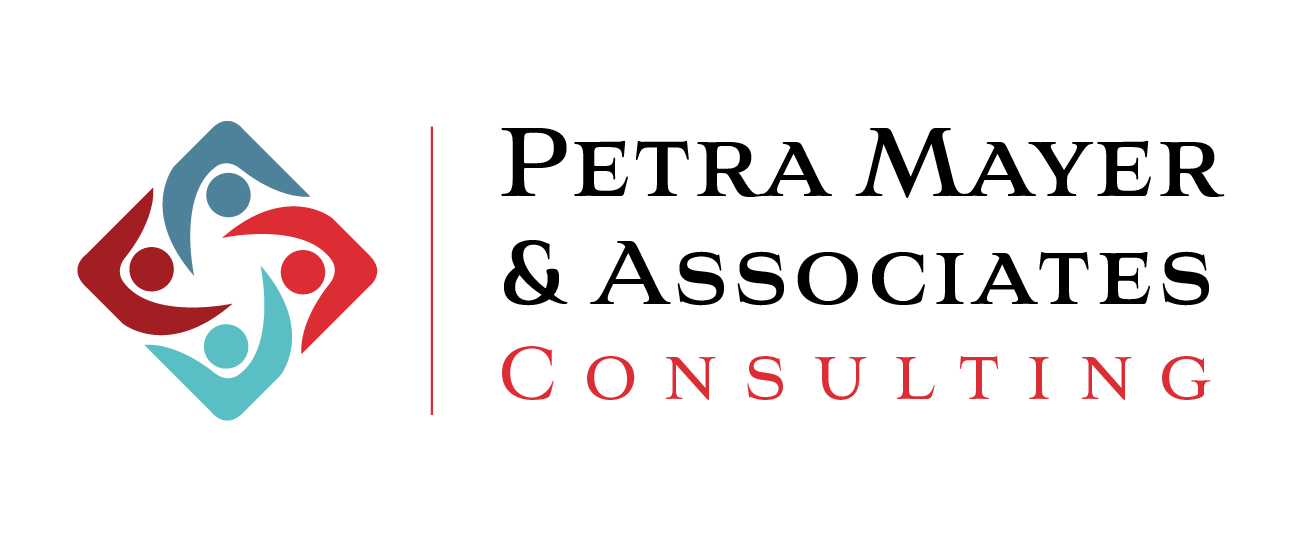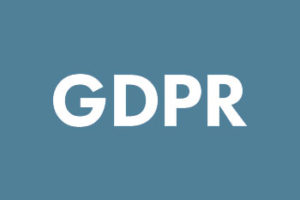
In this Interview, we meet David C. Bentall. A long time client and a G3 Successor to his family business who has evolved the idea of what a business could really use: Emotional Intelligence. In this interview, we discuss David’s book “Dear Younger Me” and how closing the chapter on the family business sparked a new passion for teaching other professionals the meaning of connection in the workplace. With the idea that emotional intelligence could pivot any business meeting, he started his small-group, online mentorship program “Emotional Intelligence for Successors” creating transformative outcomes for the participants and new opportunities for his business.
Join us and listen in to David C. Bentall’s journey and how his life experience can help you in your business too.

More information on Dear Younger Me:
https://nextstepadvisors.ca/purchase-books/
David’s Online Mentorship Program EQ4S:
https://nextstepadvisors.ca/eq4s/
Transcript
Petra
Hello, everybody. I’m Petra Mayer, Petra Mayer and Associates consulting and today I’m super proud to have with me one of my dear clients, David C Bentall. David is a G3 successor and throughout the course of our conversation, you will find out what that means. He has worked for 20 plus years in family business. Now he is the founding principal of next step advisor. And he is widely respected mentor, workshop leader and family enterprise adviser. David is dedicated to helping families learn and grow together. And he’s the author of three books, including dear younger me, wisdom for family enterprise successors. Welcome, David, and I’m so glad to have you. Thank you, Petra, this should be fun. Well, David, so you are a speaker, you’re an author, your coach, your family business advisor, which one of these roles Do you resonate with the most?
David
Well, it’s interesting, I suppose I should confess, my sister told me after we sold the family business years ago, David, now you can do what God always intended you to do. You can be a teacher and I went, I’m not a teacher. But as I’ve come to discover, in the last 25 years, I fundamentally at my core, I’m a teacher. And so each of these things, advising other families, coaching, mentoring, speaking, writing, all of these things are really just an outgrowth of the teaching. But I think so I resonate most with with a label that actually over overarching all of those, which is teacher but I suppose I resonate most with Speaker I just I find the thrill of being in front of an audience, sharing my life and my heart is, I think that’s the most most thrilling part of my professional life. So most challenging, perhaps, too. But yeah, I enjoy that.
Petra
Yeah. And I know that secretly, you have another role that you really resonate me tell tell us about that role that is from your personal life?
David
Well, it’s how we met, right? I’m a competitive water skier took up waterskiing as a as a as a serious hobby was always learned to water ski when I was eight years of age. But when I turned 40, I started competing. And so that’s been a really wonderful thing for me, and especially as a, as a family enterprise successor, who worked in our family companies, as you say, for 20 years, transitioning from being in our family company, then building my own business. It was a very destabilizing period, you know, I thought my whole life was going to be in the business better. And so one of the things that provided some stability was I had this other quest I was working on, which was to try and see if I could one day win a championship. So that’s been a great, great journey for me, too.
Petra
And then I need to bring in another little personal story here. So to the left of you, there is ticker. What’s the story of Tigger? Well, it’s
David
interesting. So you mentioned that I’m a coach, my executive coach, Laura, north, who I work with, still work with her now. But we’re started we’re working with our guests 25 years ago. She said, David, I think you’re conscientious about your life. And that leads you sometimes to be a little bit serious. And she said, I’d like to bring a little more light heartedness here, too. And she said, you know, what, what stuffed animal would you identify with the most? And I said, Well, my friends, some of my closest friends call me Tigger from Winnie the Pooh, because I kind of up for anything, always bouncing around. And she said, I want you to get a stuffed animal, which is what I bought this the Tigger and she said, I want you to strap it to your briefcase, and take it with you on your next business trip. And I thought she was crazy. But it was actually a really brilliant idea. Because how do you take yourself seriously when you got a stuffed animal like Tigger dangling from your briefcase at the airport and then meeting so? So that’s, that’s why Tigger is sitting on my bookshelf.
Petra
Yeah, I was like that story. And it’s a great reminder that you haven’t sitting there kind of watching what you’re doing. What you like watching. Yeah, so you said speaker, so speaker, you will mostly identify with speaker but yet, just recently, you published your third book, dear younger me. So can you tell us what prompted you for writing this book?
David
Sure. Better was actually, I had a very sad flight home to Vancouver, sad in the sense that I’d had two family client meetings, and I prepared well for them. But both of them had gone badly. And I was reflecting on one was in one city and one in a different place. And I was flying home to Vancouver. I was reflecting on what had gone wrong. And I thought I didn’t think it was about what I’d done in my prep. But I started thinking about I realized one of the young successors in one meeting was really impatient. And that in Patience was just was like a cloud that hung over all of the meeting. And then the other meeting, I was thinking that there had been another member, the next gen that probably fair to say was angry, at least, if not bitter, and certainly frustrated Petra. And I thought those two individuals had a dampened the mood and had had, you know, had a negative impact on these meetings. And I thought, I’m sure glad I wasn’t like that when I was younger, was I. And I realized I had been the same way I had been impatient, I had been angry and frustrated with other people in our family. And I started to think, gosh, I wonder, wonder whether I could have been a much more productive member of our family enterprise. And so I started, grabbed a sheet of paper and started writing out what what ways was I unhelpful, didn’t take me long to have a list of 10 items, 1010 ways that I had been unhelpful. And so I started thinking, you know, maybe there’s a book here about this, because about how next gen successors could cultivate emotional intelligence that would enable them to be more patient, to be more empathetic to others to be better listeners to the older generation. So that’s what I’ve written about Petra, the idea that I when I wish I’d done which I when I wish I had that, dear younger me what I wish I’d done 2530 years ago, and what, what I hope to help Next Gen. Leaders cultivate in their own life.
Petra
Yeah, so I remember when we met the very first time that you were putting the finishing touches, and we were on the way, all the way to the lake where we were on the lake to the lake. Yeah, at least you thought it was the finishing touches. I know that there were many more finishing touches afterwards. But you were putting the finishing touches on this book. So do you recall our conversation over the way to the lake and back?
David
I’ll never forget it because I thought, you know, I understood that you’d had years of helping entrepreneurs and leaders and educators put together courses. And I asked you a little bit about your experience. And you said, you know, one of the things that disappointed you about some of the work you’ve done is that you’d worked with individuals who were really wanting to sell programs for the dollars as opposed to for the potential to transform and help others. And I said, Well, how would you like to work with someone who, who really liked first and foremost, to help others? And you said, well, that’d be refreshing. That’d be different. And I think get you and I think bonded in that moment. Because, you know, of course, I’d like to earn something from the courses that I that we’ve done together. But my first impulse is I want to help other successors to get a better result than I got. And so it’s been really fun Petra to have your help, as we’ve been working on this together.
Petra
Yeah. So Dr. Younger May was kind of the seed in some ways to what we call emotional intelligence for success. So tell us a little bit more about your perspective of this transformation from a book into a program or even this, in your case, a series of programs?
David
Well, I think that the program development began before you and I met when the University of British Columbia asked me to create an online number of lectures. So we did, I think it was 54 Mini lectures, actually a combination of mini lectures and fireside chats. And so the university helped to put together with a videographer these wonderful video, mini lectures and fireside chat. So we had already had that, and we had a book, but how to take that and make that into a course. And and I think Petra, the, the moment where I think we really stumbled on something that was primarily, I think the, the rocket fuel for what we’ve done, was to realize that if people are going to cultivate emotional intelligence, they need mentoring and coaching. And so what you’ve done is helped me to take the material, it’s there, it’s in lectures, it’s in fireside chats in a book, but you helped me to take let’s put that in a, in a format where there could be case studies, and one on one, coaching sessions and peer group learning. And so that journey of putting that together has been a rich and meaningful one. And I really enjoyed taking ideas that are in my head and ideas that are on videos and, and in book form, and then creating courses out of them. Now we’ve graded you know, nine different modules out of that, or nine different monthly program that cover each of the nine different traits from the book.
Petra
Yeah, well, and I know that when we were going through this process, I was always encouraging you to try things and experiment and play and get feedback and continuous improvement. So that was a process that maybe overtime became a law. You’re here. You push, you’re pushing me challenging me. It was great. Yeah, and nowadays, you often come first and say, hey, let’s experiment, your retaliatory experiment. Let’s experiment on that. So but how does experimentation help you in this process?
David
Well, it was so interesting, because, you know, during COVID, you said, people are all at home, why don’t we just try something? And I said, well, we’re not ready. I know you said, but we could be. And so you, you, you go to me into giving it a try. And I said, you know, summers coming to a let’s let’s do it anyway, let’s give it a try. And, you know, we started and I was thrilled, how, just jumping into the deep end of the pool starting to swim we we got wet, but a bunch of people got some morning, and it was really fun to do that. So
Petra
what are the biggest transformations that you’ve seen in the clients that have gone through emotional intelligence for successes to date?
David
Well, the great thing is, I think that all of them have enjoyed, and you’re all of them are different, you know, the, the, it’s been a small group program, as you know, on purpose. And so you know, we had seven, take the first program, and I think, nine take the second program, it’s designed for between seven and 12, folks to take the program together, to learn from each other, I guess, I, three people come to mind right off the top of my head, you know, one, the biggest transformation was his relationship with his dad. One of the participants has been working professionally in their family for work outside the family firm to get experience there first. And he took the program because he wanted to improve his relationship with his dad. And so listening. One of the traits humility, and curiosity, these three traits are the three what three traits we covered in the program, he took, those three things helped him along with the individual one on one coaching had these things helped him to improve and enhance his relationship with his father. So for me, if I don’t do anything in my life, having helped that one individual to have a better relationship with his dad was a was a real joy to me. And I guess the other two people that come to mind, one of the women who took the program said afterwards, he said, they should be teaching this stuff at business school, I got a business degree, but nobody has been teaching us how to relate to others in and have quality relationships. And that was that was really gratifying to hear. And then one of the other participants said that he’d found the program transformational. Now, this is a guy who had a very, very serious accident, and, frankly, was fortunate to come out of the experience, alive, but had very traumatic fall and broken both legs and femurs at his hips. And it was, they were at danger of actually having to amputate from the hip down on both both legs and, and yet this man has been cultivating gratitude. Just think about that. He’s grateful he’s alive. But he. But as he took this program in, he was talking about how he’s come to realize the need for further transformation. It’s like, he’s already had this amazing experience. But he learned more about humility, he learned more about the value of listening to others, that his brother, his sister, his parents, and so it’s been very exciting to, to see people have these kinds of transformations. So it’s been really great to see how people are responding to the material and to the program we put together.
Petra
I remember one of the very first group sessions that we had, where I was attending, how people would say, Wow, there, this is so amazing, because people understand me and, and there is they have the same problem. I’m not weird, I’m, I’m just what, you know, they’re like me, they have the same issues and and bringing people together in that context has had, I think, a huge impact on them. So in some ways, you’ve brought in training program, mentorship, coaching, but you also created a space where they can connect with others who have similar experiences, and that exchange of experiences hugely valuable, I think.
David
Well, I think that was one of the greatest joys of the program, which, which actually was a surprise to me that how much I think they joked about, can we have meetings without mom and dad their meaning without without me and our and our coaching team? You know, could they meet together? Because they, they so crave this opportunity, as you say, to connect with others who were weird, like them, or, or at least, you know, in a similar circumstance. And I think that was a wonderful thing that we we saw that was one of the greatest joys of the of the program.
Petra
Yeah. So if you were to give advice to another professional advisor who has developed intellectual property experiences that they’ve turned into systems or processes, like you have written books, presenting as a keynote speaker, giving workshops, but they want to now create more programming marketable services, what would be your advice to them? How to get started?
David
Well, I think several things. So you’ve mentioned, you’re assuming perhaps folks have written some things down so that the first thing that I would do is if they haven’t written, you know, I’ve now had the opportunity to do three books if if you’ve got IP, but you don’t have a book yet. You know, some people think, well, books are old, we don’t need books anymore, we still need books. We also need other things like podcasts and, and various other things that blogs and zoom opportunities to do things but using other interactive channels, but I think if people haven’t written the book, I think I just would encourage people with IP to write it down, it’s worth the effort, because then it gives you a foundation to work from. And then the other thing that, that I was so happy that the University of British Columbia 18 years ago, I think it was it asked me to start lecturing on campus. And I would encourage people if they want to get their IP out there to take opportunities, whether it’s speaking, or lecturing, or volunteering to teach, so that they can get opportunities to practice delivering their material. And then beyond that becomes the fun of saying, well, it, what kind of material can we create in a course format? And I mean, my answer is very, very material speaking with you, I would say hire a pro like Petra to help you put together a program, you know, because I’ve got ideas in my head. And I can, and I can articulate them either in a written form or in a, in a, in a in a presentation. But the country and all that, no, I don’t want to make you blush, but your organizational ability, your skill in following through with detail, and hounding me to get get the case studies written, you know, that provided structure and discipline, it actually I was thinking about this in advance of our call. And I, earlier in my career did a lot of fundraising, whether it would be with the United Way or with our school or our son went to the private school or the church camp that our kids all went to. And fundraising is about being disciplined, and following through and making the phone call and then following up and providing material. And the better you you bring that wonderful sense of discipline and follow through and almost like a drum major, keeping us on task. And you know, so if someone wants to do this, I would encourage them to, to get someone like you to help them to provide the structure and discipline and guidance, because I never would have never would have developed the course without your your help.
Petra
Thank you. Thank you for saying that. And acknowledging that. And you always have been very, very gracious and acknowledging the role that we all play in this because we’re a team, it’s a team. It’s a team experience, that it’s a team sport, it’s a team. It’s a team sport, for sure. And I think, you know, one thing that you’re speaking to here that very much speaks to my heart is that we all bring different perspectives and different expertise to it. And I think a lot of I see a lot of professional advisors struggling with this, they have this great idea. But bringing the idea from concept to delivery from the idea to something that they can actually put out on their website, promote work on collaboration, like we’re doing right now, for your programs. That’s a lot of steps, though, you know, down the road or up the hill of however you want to look at it and and having those steps, it takes a lot of energy. And I think we need to have our cheerleaders that get us there.
David
Well, and you’re much more than a cheerleader when you are a cheerleader, but you know, why try and reinvent the wheel, you’ve done it so many times before. So you’ve been you were able to, to help guide me and doing the work and point me in the right direction. So, you know, I think that if someone wants to do any kind of professional course working with someone who’s done it before, it makes a lot more sense than just trying to, to reinvent the wheel.
Petra
So as we’re closing, and I really appreciate your time this afternoon, but you know, as we’re going to share this interview, and I hope that you will share the interview. how can listeners to this interview, find out more about EQ for us about your book? Where can they go? And might you even and I know I didn’t tell you this beforehand, but might you even have a little gift for them?
David
Sure, sure. Well, if anybody’s interested, they can just jump on my website. Next step advisors.ca. And we’re happy to send them an excerpt from their younger me to give them a taste of what that’s like. And it’s now happily it’s available in audio as well as so you can go on to Amazon and order an audible version read by the author even so that’s available if you’re interested in of course I if people choose to order either dear younger me or leaving a legacy from my website, I’m all they come we send them off from our home so that I can sign them personally. So if you’re interested, be happy to provide those resources to people.
Petra
Yeah. Awesome. Thank you so much, David. And I’ll be sure to add those. Those links to the bottom of of this interview. Thank you very much for you. Thank you. Thank you. It’s been great fun working with you better and thanks for this today. Thank you Have a good day. Awesome. Bye for now.

Do you want to learn more about how to create and online program? Download my White Paper now!

